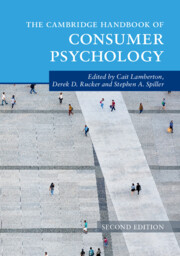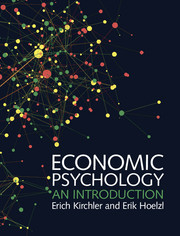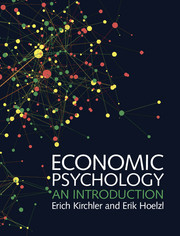Behavioral Law and Economics
This exciting volume marks the birth of a new field, one which attempts to study law with reference to an accurate understanding of human behavior. It reports new findings in cognitive psychology which show that people are frequently both unselfish and over-optimistic; that people have limited willpower and limited self-control; and that people are 'boundedly' rational, in the sense that they have limited information-processing powers, and frequently rely on mental short-cuts and rules of thumb. Understanding this behavior has large-scale implications for the analysis of law, in areas including environmental protection, taxation, constitutional law, voting behavior, punitive damages for civil rights violations, labor negotiations, and corporate finance. With a better knowledge of human behavior, it is possible to predict the actual effects of law, to see how law can promote society's goals, and to reassess the questions of what law should be doing.
- First book to analyze law by showing how people behave
- Has implications for, and discusses many of the most disputed current issues in law, such as labor strikes, environmental protection, punitive damages
- Author highly visible
Reviews & endorsements
"Human psychology is complicated. The law and economics paradigm traditionally has treated it as simple. This volume splendidly marshals leading works by scholars whoin pursuit of realism--seek to add complexity to the traditional paradigm. A significant landmark in the field of law and social science." Robert C. Ellickson, Walter E. Meyer Professor of Property and Urban Law, Yale Law School
"...this is a valuable contribution to the study of law and courts....This compilation serves to focus discussion on a set of particularly important theoretical challenges to the standard economic model. Thus, this book belongs on the shelf of any student of the law and courts who advocates or challenges the rational choice model of decision making on the courts." Paul J. Wahlbeck, The Law & Politics Book Review
"...the essays in this book provide a clear and vivid introduction into a research program that promises to illuminate our understanding of how law influences behavior." New York Law Journal
Product details
March 2000Hardback
9780521661355
448 pages
229 × 152 × 29 mm
0.83kg
42 b/w illus. 29 tables
Available
Table of Contents
- Introduction Cass R. Sunstein
- Part I. Overviews and Prospects:
- 1. A behavioral approach to law and economics Christine Jolls, Cass R. Sunstein and Richard Thaler
- Part II. Heuristics and Biases: Shortcuts, Errors and Legal Decisions:
- 2. Context-dependence in legal decision making Mark Kelman, Yuval Rottenstreich and Amos Tversky
- 3. A positive psychological theory of judging in hindsight Jeffrey J. Rachlinski
- 4. Behavioral economics, contract formation, and contract law Russell Korobkin
- 5. Organized illusions: a behavioral theory of why corporations mislead stock market investors (and cause other social harms) Donald C. Langevoort
- 6. Reluctance to vaccinate: omission bias and ambiguity Ilana Ritov and Jonathan Baron
- 7. Second-order decisions Cass R. Sunstein and Edna Ullmann-Margalit
- Part III. Valuation: Values and Dollars in the Legal System:
- 8. Experimental tests of the endowment effect and the cause theorem Daniel J. Kahneman, Jack L. Knetsch and Richard H. Thaler
- 9. Assessing punitive damages (with notes on cognition and valuation in law) Cass R. Sunstein, Daniel J. Kahneman and David Schkade
- 10. Framing the jury: cognitive perspective on pain and suffering award Edward J. McCaffery, Daniel J. Kahneman and Matthew L. Spitzer
- 11. Behavioral economic analysis of redistributive legal rules Christine Jolls
- 12. Do parties to nuisance cases bargain after judgment? A glimpse inside the cathedral Ward Fransworth
- Part IV. The Demand for Law: Why Law Is As It Is:
- 13. Some implications of cognitive psychology for risk regulation Roger G. Noll and James E. Krier
- 14. Explaining bargaining impasse: the role of self-serving biases Linda Babcock and George Loewenstein
- 15. Controlling availability cascades Timur Kuran and Cass R. Sunstein
- 16. Cognitive theory and tax Edward J. McCaffery.






